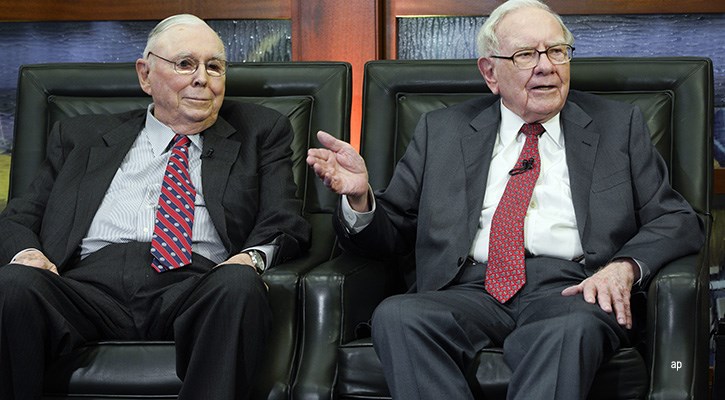
At Morningstar, we pride ourselves on our ability to rate things. We rate stocks, funds, fund managers, ETFs, trusts, and we do it well. But the UK editorial team has been wondering: what would we find if we rated CEOs?
This is a timely question. With Elon Musk's takeover of Twitter handing the South African billionaire yet another company to run, plenty of people are already asking how he intends to spin so many plates. This led us to ask: what should investors look for in good CEOs?
To find the answer, I sat down with Morningstar manager research analyst Bhavik Parekh to find out more about how analysis process might be applied to the issue.
Experience Counts
A top thing our funds team looks at is experience – and relevant experience. In the manager world, most have spent years working as analysts before eventually taking on managerial roles. But experience does go beyond that.
Parekh says: “If we see a manager doing UK small cap, for example, and then all of a sudden they’re doing global emerging markets, that’s not relevant experience.”
Applying this to CEOs, it is not enough to have knowledge of running any company. Being the CEO of a non-listed company selling exhaust pipes is probably not that relevant to the task of running, say, HSBC. Relevant experience counts. That said, according to Harvard Business Review, there are more high-level CEOs with engineering degrees than MBAs.
Processes Matter
Back on the fund manager side, Morningstar believes good fund managers stick to a certain plan outlined for the fund: this is what we mean when we describe a strategy having "a strong process". Great managers keep their cool and stick with their recipe time and time again, whether that’s buying stocks that are super cheap, buying those with the potential to grow 100% in a certain year, or always avoiding companies with high debt.
In the case of CEOs, this would be the ability to develop a strong business plan. If a CEO were to score highly on both experience and process, they might have had experience and executing a certain business plan, like turning around a company, before.
Parekh notes: "The most important thing is that the manager or CEO does what they is on their tin [so to speak], and that what’s in the tin is a good product.”
Personality could play an important part here. As we’ve recently covered, fund managers with narcissistic personalities – who tend to diverge from their processes and plans due to undue conviction in their own ideas – actually have a lower success rate over time. If you were rating CEOs, then, Narcissism should probably be one measure.
On The Clock
It might be obvious, but a fund manager or a CEO should have enough time on their hands to actually do their jobs well. And not everyone does. A fund manager could be responsible for several different funds with different focuses. They will probably also be managing a team and possibly running a business too. "In aggregate, this could be a potential reason for a lower score," Parekh says.
Turnover Talks
On the people side of business, a couple of things are important. Firstly, there’s team size and calibre, which is loosely tied to experience as well. A strong team in the funds world will consist of a diverse range of people at different stages of their career. They certainly shouldn't all be graduates, but they shouldn't be near-retirees either. Part of this is for input, but some of it also apply to turnover. While some people moves are expected, high turnover is normally a bad sign. It usually means one, or all, of the following: the manager could be difficult; salaries are not very good; the working environment is bad; or maybe performance is bad. Compliance concerns could also be an issue. Sounds familiar?
How Did They Do?
So what if we applied all this to some of today’s most famous CEOs? Here’s how some of them might rank.
When applying the methodology, Elon Musk might look like a worst-case scenario, but the Tesla (TSLA), SpaceX and soon-to-be Twitter (TWTR) CEO has clearly made the setup work for him. In terms of experience, he’s well-versed in leading several companies at the same time, and his background in engineering and economics is certainly relevant. But it remains to be seen how the new venture will work in practice. At the very least, it he’ll only be able to lead Twitter on a part-time basis.
Speaking of Twitter, it’s worth mentioning that co-founder and former CEO Jack Dorsey stepped down from the role because he felt unable to devote sufficient time to leading the platform alongside payments company Block, formerly known as Square.
Jeff Bezos is no longer the CEO of Amazon (AMZN), but he deserves a mention. He was a computer engineer when he founded the company, which he led for a very long time – and we do like longevity and low turnover. The turnover rate and job satisfaction is not really replicated at lower levels, however, as multiple lawsuits over working conditions in the business have shown. That said, the company is continuing its growth, and Bezos’ ability to keep an eye on the future has earned him top CEO ratings several times in his career. Aside from the ethics, practices, and policy controversies, he looks good.
Moving on to another CEO who has courted controversy, Mark Zuckerberg has seen wild success with Facebook and latterly Meta (FB). He holds an absolute majority of voting rights and is therefore able to do “whatever he wants”. Controversy-wise it hasn’t really been the best strategy, but he is loved by his employees, and Facebook is a project he has devoted his entire career to. Based on our metrics, he seems to be doing well.
If you have thoughts on the best way to rate CEOs, do get in touch with the editorial team. You can contact Sunniva at Sunniva.Kolostyak@morningstar.com





























